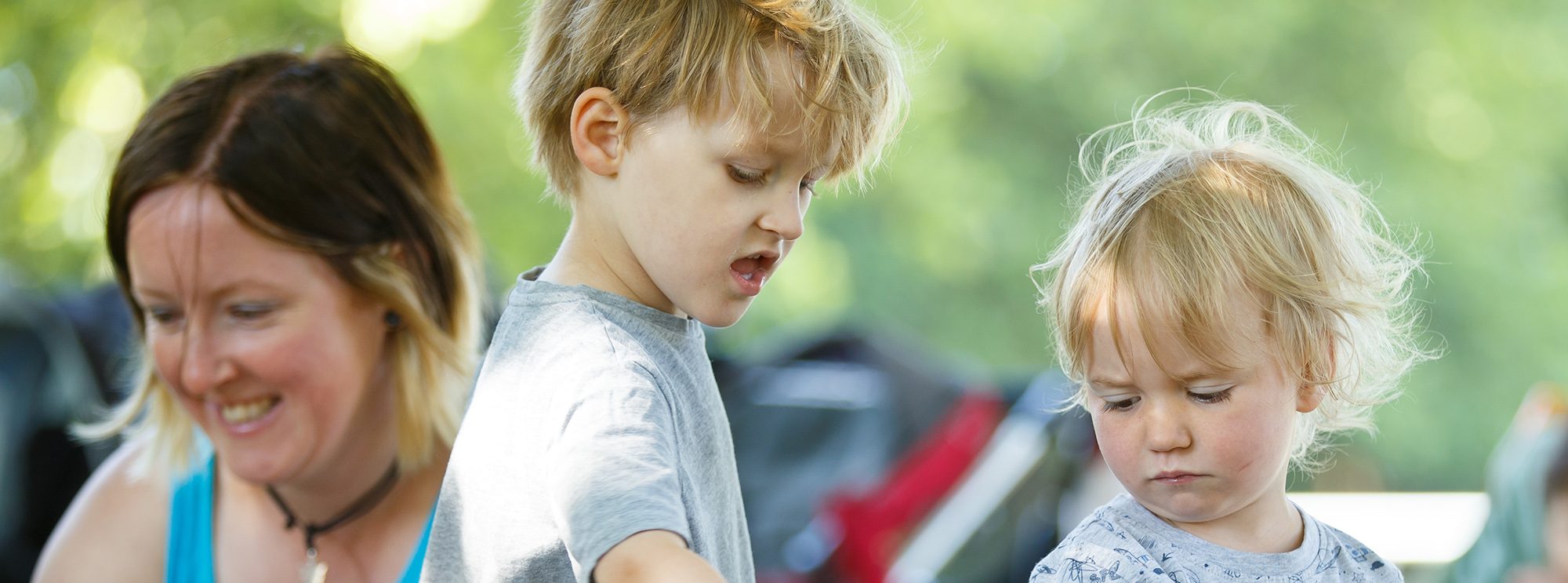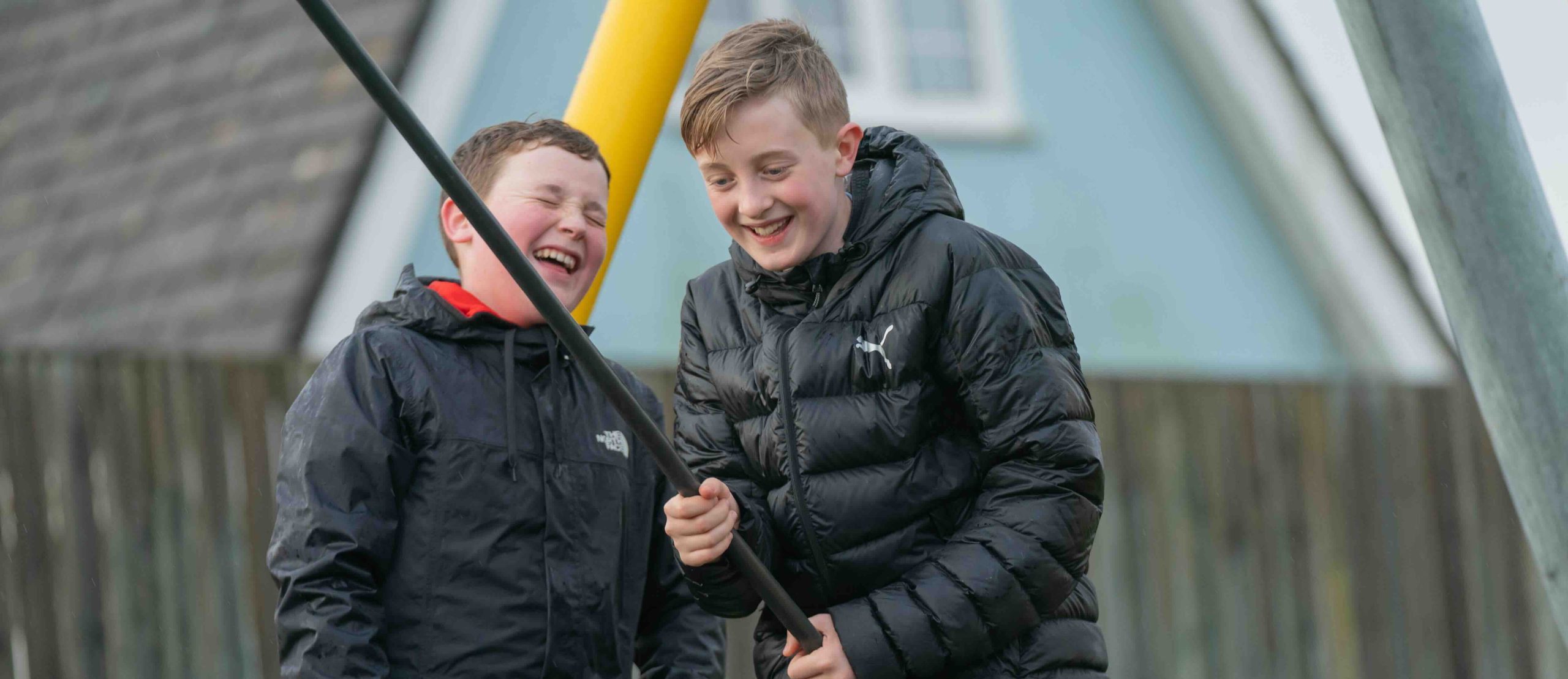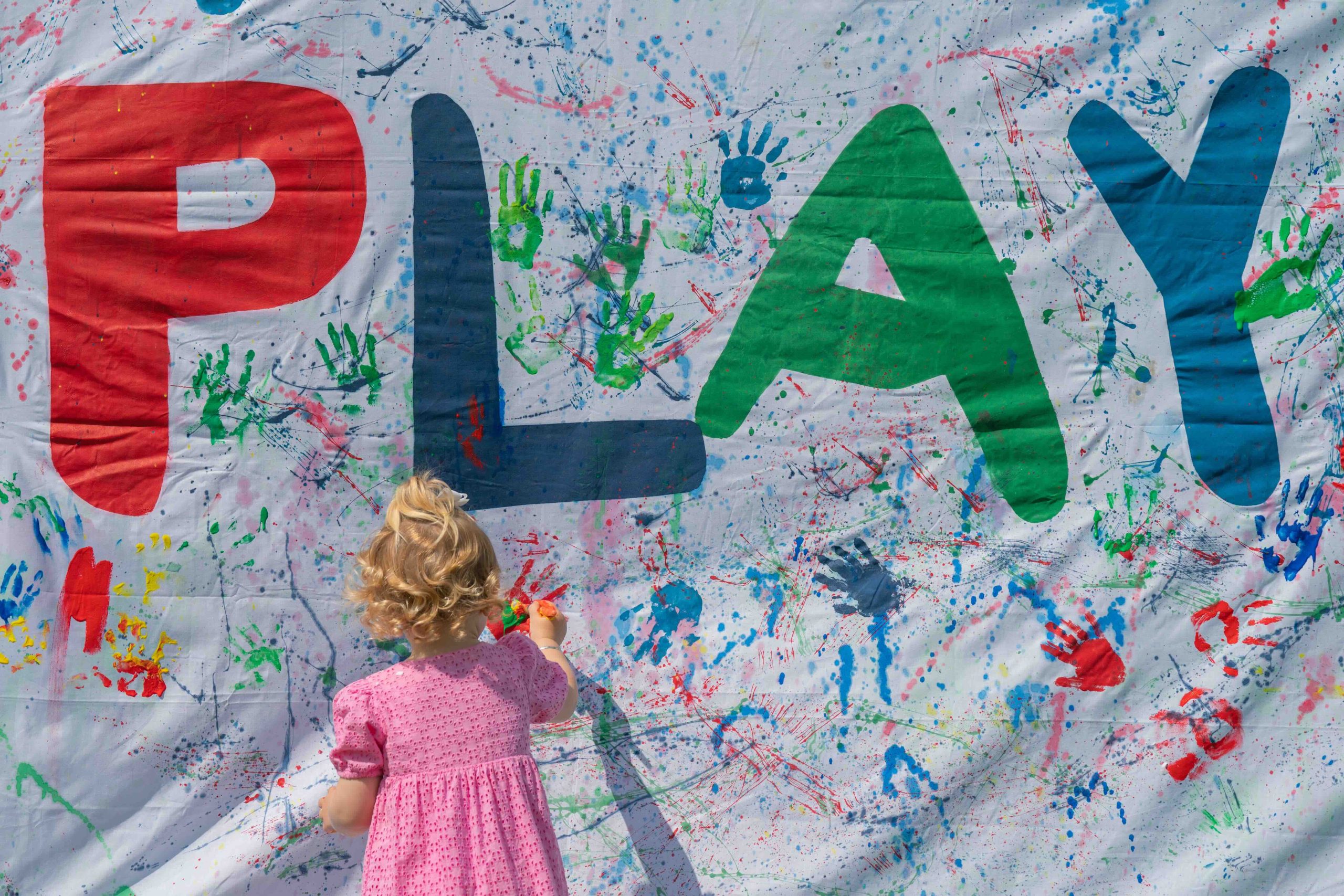All about play
Play that includes every child
Children enjoy different kinds of play and have different interests. The ways they play change as they grow and develop. But all play should be inclusive. All children* and teenagers, including disabled children and teenagers, need play equally and have an equal right to a childhood full of play.
*‘All children’ means every single child – whatever their culture, impairment, gender, language, background, behaviour or need.
‘Inclusive play’ means that:
- All children and teenagers have equal access to good quality play provision in their local area
- They can choose how they play – with other children or alone
- Wherever they play, it should be possible for them to play how they want
- They should have access to a wide range of opportunities for play.
Things to think about
Make sure playing is social
Children play with their friends and family, and sometimes with whoever is where they are playing. Playing gives children lots of important social experiences – one of these is meeting and getting to know people who have different backgrounds, circumstances and abilities. This can help children develop open, welcoming attitudes, and helps children not to feel different.
Make sure playing involves choices
Children don’t always want to play in the same way, with the same people, or in the same place. Whatever a child’s impairment or circumstance, it’s important that you make sure they can play in their own way. It’s also important that they have as much control and choice as possible about their play.
Make sure play is accessible
Do all children have equal access to the play space or service? Accessibility is about minimising barriers to play including, entrances and exits, movement around the space, access to play equipment and play experiences. If you’re organising something like a street play event or getting together with other families, think about accessibility in advance.
Make sure play is inclusive
Being inclusive is more than just being accessible. It’s also about openness, being welcoming and willing to adapt, and making sure no one is left out. This doesn’t mean that everyone will have the same opportunity to play. But all children should be able to play in a way that includes them and that they enjoy.
Things to do
Ask first…
If you aren’t sure of the best way to include a child or teenager, start by asking them. If it seems appropriate, you can also ask their parents, siblings or friends.
…then listen and take action
After you’ve asked the question, try to find ways to take action on whatever is suggested. It may not be possible to do everything that has been asked for but little changes often make the difference between somebody feeling included or not. If you can’t take action straightaway, explain that you can’t do it now but are going to try to do it as soon as possible.
Adapt games
There are lots of ways to adapt games so no-one is left out – for example:
- Slow a game down by using a soft ball instead of a bouncy one
- Give instructions or information in more than one way – for example, speaking, showing pictures or demonstrating
- Pair children who feel apprehensive with children who are more confident
- Pair fast runners with slower ones
- Pair older children with younger ones
- Focus on what children can do rather than what they can’t
- Use fun symbols, badges or flags as visual clues for games – for example, to show who is in a particular team or where the den is.
Take a look at your own attitude
Inclusion involves learning and being open to different ways of being and doing things. Sometimes our own attitudes and assumptions need to change, and sometimes we need to change the way we do things – for example:
- Remember there isn’t a right and wrong way to play
- Enjoy seeing play equipment or resources used in ways you hadn’t planned or expected
- Be prepared to learn alongside the children
- Be ready to try things out – if they don’t work, try something else
- Be prepared to support every child’s right to play
- Find out how other people and groups make sure all children are included
- Make use of any available advice and resources about inclusion
- Celebrate things that go well
- Be open to the unexpected – good play spaces and opportunities allow children and teenagers to do and enjoy things they might not have done elsewhere.













